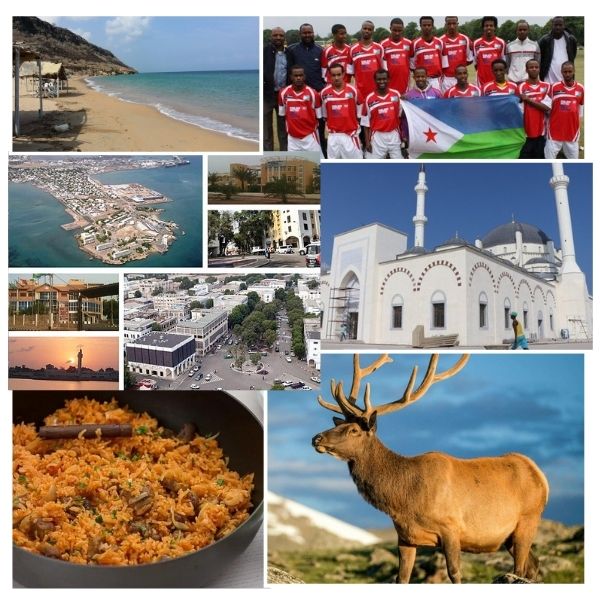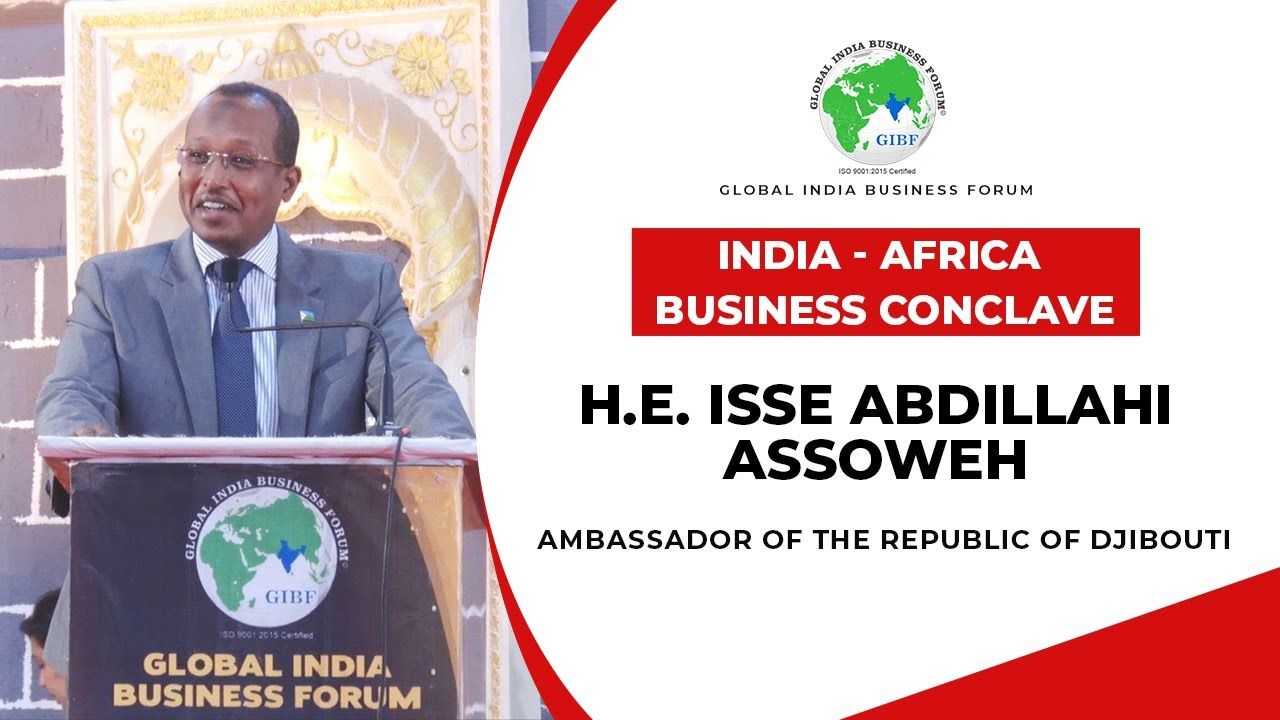
India Djibouti Business and Cultural Council

About Djibouti
Djibouti, located in the Horn of Africa, is a small but strategically significant country bordered
by Eritrea to the north, Ethiopia to the west and south, Somalia to the southeast, and the Red Sea
and Gulf of Aden to the east. Covering an area of approximately 23,200 square kilometers, Djibouti
is known for its arid, desert-like terrain, volcanic landscapes, and a population of about one
million people. Its capital, Djibouti City, serves as the nation's economic, political, and cultural
hub.
Djibouti's strategic location at the southern entrance to the Red Sea has made it an important port
and refueling center, with one of the busiest shipping lanes in the world. This strategic
significance is reinforced by its hosting of several international military bases, including those
of the United States, France, China, and Japan. The Port of Djibouti is a critical transit point for
goods entering and leaving East Africa, particularly for landlocked Ethiopia.
Djibouti's economy is heavily dependent on services, particularly port services, trade logistics,
and foreign military bases. The country has been working to diversify its economy by investing in
infrastructure projects like the Djibouti-Addis Ababa railway and various free trade zones, aiming
to become a regional trade and logistics hub. Despite its economic ambitions, Djibouti faces
challenges such as high unemployment, limited natural resources, and reliance on foreign aid.
Djibouti's culture reflects a blend of Somali, Afar, Arab, and French influences. French and Arabic
are the official languages, with Somali and Afar also widely spoken. The country is predominantly
Muslim, and Islam plays a significant role in daily life. Djibouti offers unique natural
attractions, including Lake Assal, the lowest point in Africa, and its diverse marine life, making
it a hidden gem for adventurous travelers.
Objectives

Business Council
To promote bilateral trade between India and Djibouti To boost businesses of all the sectors, particularly MSMEs, and create business opportunities To promote businesses of all sizes across the two countries Establish business to business and people to people contact Create tie-ups amongst chambers of commerce and have businesspeople as part of this council.

Cultural Council
To promote cultures and exchange ideas and values through this council Facilitate cultural exchanges in the form of music, dance, history, artifacts, exhibitions, expos and even through online mediums Create opportunities for student exchanges, training and courses to promote cultural relations between India and Djibouti To promote artists through shows, exhibitions, etc. either in person or through online mediums.
